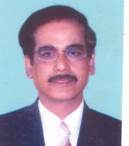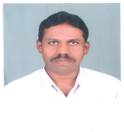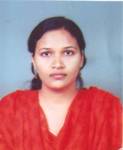Genesis
The Centre for Study of Social Exclusion and Inclusive Policy (CSSEIP) in Gandhigram Rural Institute (GRI)-Deemed University was started to function in June 2010 as per UGC guidelines. The concept of Social Exclusion originated in France in 1970s and eventually acquired wider currency in academic milieu across the world to characterize discriminations and disadvantages of marginalized groups. Moreover, the manifestations of Social Exclusion vary across countries. In some countries, immigrants or racial minorities are excluded; in others, ethnic or religious minorities. Social Exclusion refers to the complex processes that deny certain groups full participation in society. At GRI, we use the phrase “Social Exclusion” to refer the processes by which entire marginal groups like Dalits, Adivasis, and Subalterns etc. are systematically denied rights, opportunities and resources that are ensured for all citizens to accomplish their full participation in society. Since its inception, the Centre is marching towards achieving the goal of a more inclusive and just society through teaching, research, extension and networking with the Third Sectors. Currently, the Centre is engaged in conceptualizing and understanding the process, nature and forms of Social Exclusion. Also, the Centre is engaged in identifying the unmet need of policies, the challenges and prospects of inclusive policies.
Vision
To built a more socially inclusive and a just society, in which all communities are empowered with access to rights, equalities, opportunities, resources and power.
Mission
We endeavor to ensure the excluded segments/social groups of our society- the rights, self-respect, dignity, integrity, judicial equity and full participation. We espouse strategies and policy advocacy for socio-economic, political and cultural inclusion of deprived social groups. Together, we work to annihilate the barriers that prohibit access to these essential rights, resources, opportunities and power by advocating for structural change in our society.
Thrust Areas
1. Social Groups: Dalits, Adivasis, Women, Backward Classes, Religious, Ethnic and
Linguistic Minorities, Trans-genders, People with HIV/AIDS,
Differentially-abled, Population Ageing and other social ‘misfits’.
2. Sectoral Groups: Subaltern groups (Marginal farmers, Agricultural laborers,
Bonded labors, Informal and Unorganized sector workers,
Manual scavengers etc), Child workers, Sex workers etc.
We pursue our mission through the following areas of activities:
- Teaching and Research: To impart the concepts and themes of Social Exclusion at post graduate and research level. To bring out broad based, multi-dimensional and innovative ideas in understanding the nature, forms and dynamics of Social Exclusion in India. To analyse the structural origins of Social Exclusion and to explore the approaches towards inclusion. To study the unmet need of policies, the challenges and prospects of inclusive policies. In addition to that, the Centre is working towards formulating “Social Exclusion and Inclusion Model”. Also, the Centre is carrying out detailed compilation of profile of excluded groups /communities based on the socio-economic data generated by government agencies.
-
· Documentation: Documenting the articles and news reports on excluded groups. Maintaining a Database in this regard.
-
· Academic activities: Organizing conferences, seminars, symposia and public lectures on the themes of Social Exclusion and publishing regularly the research findings of the Centre.
-
Extension and Networking: To collaborate with the Third Sectors to increase public understanding of how disadvantages/marginalization is structured and to respond the community-identified needs which are the imperative for policy solution.
Newsletter
GRI-CSSEIP Newsletter 'One Humanity' will be published quarterly which features articles that highlight the issues of social exclusion and inclusive policy and bring out the ideas and discussions that seek to combat the problem of social exclusion. The title for newsletter is inspired by Classical Tamil Sangam poet Thirumoolar’s famous paraphrase ‘One Humanity, One God’ (Onrae Kulam, Oruvane Devan) which implied the universal equality of all kinds of people irrespective of their caste, ethnicity, race, linguistic or religious backgrounds.
List of Faculties, CSSEIP, GRI
|
|
Dr. C. Ramanujam Associate Professor cum Deputy Director & Coordinator Mobile: 09865609890 E-mail: c.ramanujam@rediffmail.com
|
|
|
Dr. A. Mani Assistant Professor cum Assistant Director Mobile: 09976914529, 09865909795 E-mail: mani.chella@gmail.com
|
|
|
Mr. P. A. Sam Velladhurai Assistant Professor cum Assistant Director, Mobile: 09840391263 E-mail: samvelladhurai@yahoo.co.in
|
|
|
Dr. Anjuli Chandra Assistant Professor cum Assistant Director Mobile: 09715339798 E-mail: chandra.anjuli@gmail.com
|



